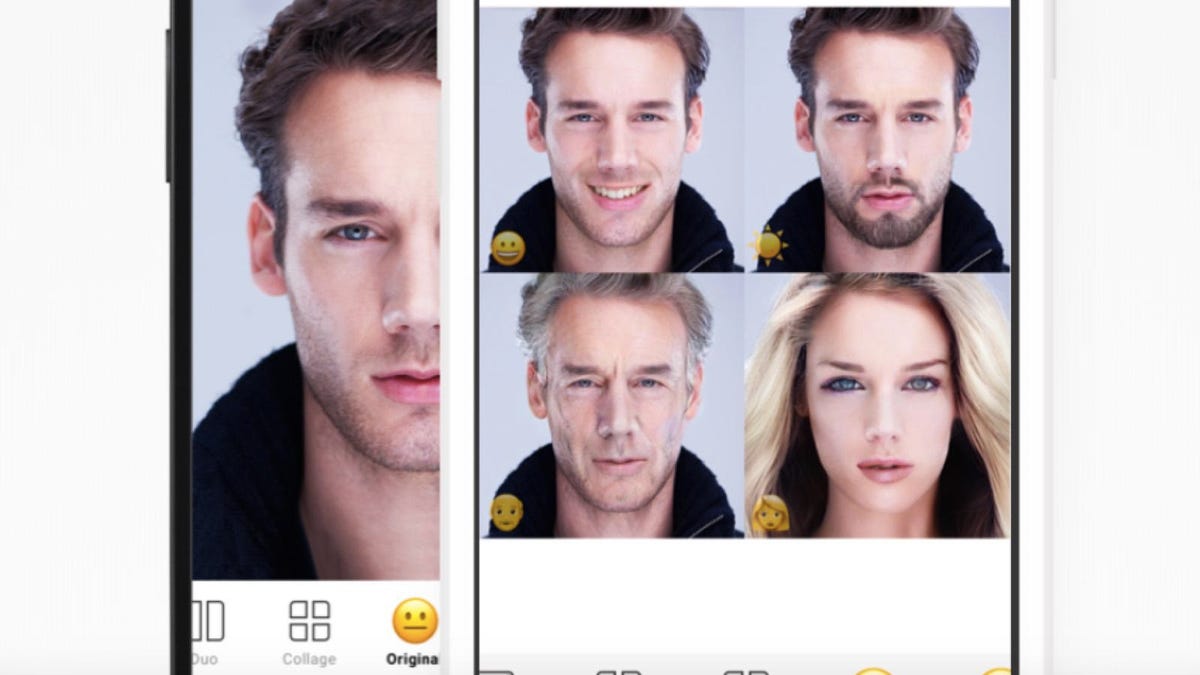FaceApp says it's not uploading all your photos
The viral app that uses AI to see what you'll look like older responds to privacy concerns.

FaceApp uses AI to change your hair, gender, age and more.
The latest craze on the internet is seeing what you might look like when you're older. Way older. FaceApp, developed by Russia-based Wireless Lab, took social media by storm practically overnight this week with the #AgeChallenge, which has been trending on Twitter.
As quickly as AI-based FaceApp took the spotlight, concerns about privacy began to circulate over the app uploading users' photos to the cloud. Jane Wong, a well-known app tipster on Twitter, tweeted on Wednesday that she didn't find anything too "fishy" when she explored the app's code but wished there was an option for users to delete their photos from the server.
In response to privacy concerns, FaceApp on Wednesday provided a statement, first to TechCrunch, saying most images are deleted from their servers within two days of the upload date.
"Most images are deleted from our servers within 48 hours from the upload date," FaceApp said in the statement. "We accept requests from users for removing all their data from our servers. Our support team is currently overloaded, but these requests have our priority."
I am not seeing much fishy in FaceApp
— Jane Manchun Wong (@wongmjane) July 17, 2019
Photos are uploaded to FaceApp's servers on AWS w/ authorization. Not much info is being sent to FaceApp's servers other than user metrics (e.g. ui interactions)
I just wish there's an option for users to delete their photos from the server
In its statement, FaceApp said it performs most of its photo processing in the cloud, but it doesn't transfer photos from the phones that haven't been selected for editing to the cloud. The app said it might store an uploaded photo in the cloud for performance and traffic. The app also noted that all FaceApp's features are available without logging in and no data is sold or shared.
"Even though the core R&D team is located in Russia, the user data is not transferred to Russia," the app added.
This isn't the first time users have raised an eyebrow at FaceApp. The photo editing app came under fire in 2017 when its "hot" filter gave people light skin tones.
New York Sen. Chuck Schumer has asked both the FBI and the Federal Trade Commission to look into FaceApp citing national security and privacy concerns, especially in the age of facial recognition technology, NBC reported Wednesday afternoon, tweeting a copy of Schumer's letter sent Wednesday.
"In order to operate the application, users must provide the company full and irrevocable access to their personal photos and data," Schumer wrote, adding that the app's privacy policy gives it the right to use or publish any content shared, including real names, without notifying people.
"I have serious concerns regarding both the protection of the data that is being aggregated, as well as whether users are aware of who may have access to it," he wrote.
Schumer added that FaceApp's location in Russia "raises questions" on how US citizens' data is being used, especially in relation to foreign governments.
"Russia remains a significant counterintelligence threat," Schumer wrote. "I would urge that steps be immediately taken by the FBI to mitigate the risk presented by the aggregation of this data."
First published July 17 10:11 a.m. PT.
Update, 4:52 p.m. PT: Adds info about Sen. Schumer's concerns.



